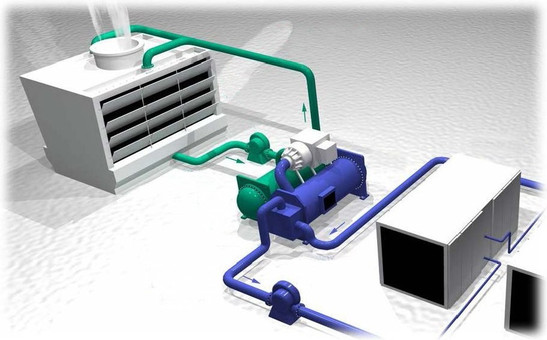NZEB Design Strategies for Residential Buildings in Mediterranean Regions - Part 2 (GB31) By: REHVA
The aim of the guideline is to support, in a practical way, a design process for realizing Nearly-Zero Energy Buildings (NZEB) in the context of Mediterranean-climate, focusing more on the mechanical systems than on the building envelope, which has previously been treated in Part 1 (REHVA Guidebook No. 28).
Advances in Refrigeration Technologies for Climate Change Mitigation By: AICARR
There is a strong need to make available to the scientific community a collection of the most recent research results in the field of refrigeration to mitigate climate change. Therefore, this Research Topic is both an opportunity for researchers to demonstrate their innovative proposals, and a necessary response to the need to safeguard our planet while continuing to satisfy of one of the essential human needs: refrigeration.
CIBSE Guide C: Reference data (2007) (includes CD-ROM) By: CIBSE
The Guide is made up of 6 sections: 1. Properties of Humid Air 2. Properties of Water and Steam 3. Heat Transfer 4. Flow of Fluids in Pipes and Ducts 5. Fuels and Combustion 6. Units, Standards and Mathematical Data.
7.01 Calculation of load and thermal demand By: ATECYR
These guidebook indicates the relationship of the behavior of the building to the variations of external conditions and its thermal demand to reach the thermal well-being design conditions
9.04 Radiant floor systems By: ATECYR
To generate heating, one of the most commonly used systems is underfloor heating. This guide explains the design and sizing of these systems that can be used both for heating and cooling
9.07 Calculation and selection of HVAC generators By: ATECYR
This document includes the design of chiller plants, (electric or gas, absorption and adsorption chillers), boilers, heat pumps and steam generators and cogeneration systems
9.08 Gas heat pumps By: ATECYR
The document analyzes the possibilities of using gas heat pumps (GHP, "Gas Heat Pumps") for the production of heating, cooling and DHW production in buildings.
10.05 Basic principles of condensing boilers By: ATECYR
This is a theoretical guide that delves into the learning of the physical phenomenon of condensation, under the prism of condensing boilers, as the current efficient solution for heat generators. The objective is to promote energy efficiency in heating systems.

